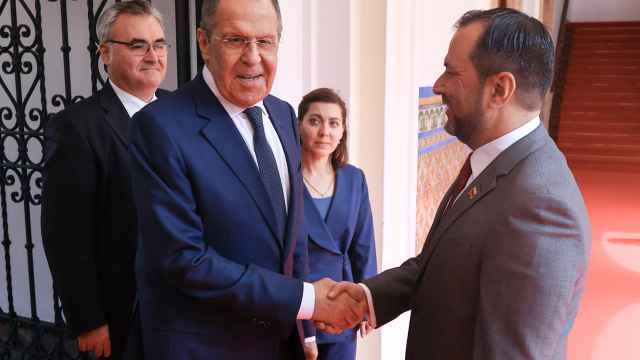Almost nine out of 10 large Russian companies say they are wary of looming U.S. sanctions, according to a new survey conducted by a private consulting firm.
Washington targeted major Russian companies and prominent businessmen for “malign activities” in a sweeping round of sanctions last April. The U.S. Congress introduced a new “sanctions bill from hell” in August that would restrict new Russian sovereign debt transactions, energy and oil projects, uranium imports and would extend sanctions on Russian political figures and oligarchs. U.S. lawmakers will reportedly consider the bill after Tuesday’s midterm elections.
Eighty-six percent of big businesses in Russia said they were anxious about new punitive measures, according to a survey conducted by the U.S.-based Adizes Institute consultancy commissioned by the RBC news website.
Respondents named import bans, a weaker ruble and a ban on Russian state banks conducting foreign exchange transactions as their top three concerns.
“It’s impossible to prepare for this, just like [it’s impossible to prepare] for a natural disaster,” RBC quoted Mikhail Levchuk, a board member of the Business Russia entrepreneurial group, as saying.
As part of the survey, Adizes interviewed 1,015 Russian business owners and CEOs at companies in the manufacturing, construction, financial, transport, IT and medical sectors.
Asked about the effects of the last round of sanctions in April, 95 percent of big Russian businesses said they had suffered from a weak ruble and instability in financial markets.
“We’ve all been cooking in this cauldron since 2014. Some were more successful, some less. Some went out of business, while others adapted and found other suppliers,” Levchuk was quoted as saying.
Reuters contributed reporting to this article.
A Message from The Moscow Times:
Dear readers,
We are facing unprecedented challenges. Russia's Prosecutor General's Office has designated The Moscow Times as an "undesirable" organization, criminalizing our work and putting our staff at risk of prosecution. This follows our earlier unjust labeling as a "foreign agent."
These actions are direct attempts to silence independent journalism in Russia. The authorities claim our work "discredits the decisions of the Russian leadership." We see things differently: we strive to provide accurate, unbiased reporting on Russia.
We, the journalists of The Moscow Times, refuse to be silenced. But to continue our work, we need your help.
Your support, no matter how small, makes a world of difference. If you can, please support us monthly starting from just $2. It's quick to set up, and every contribution makes a significant impact.
By supporting The Moscow Times, you're defending open, independent journalism in the face of repression. Thank you for standing with us.
Remind me later.






